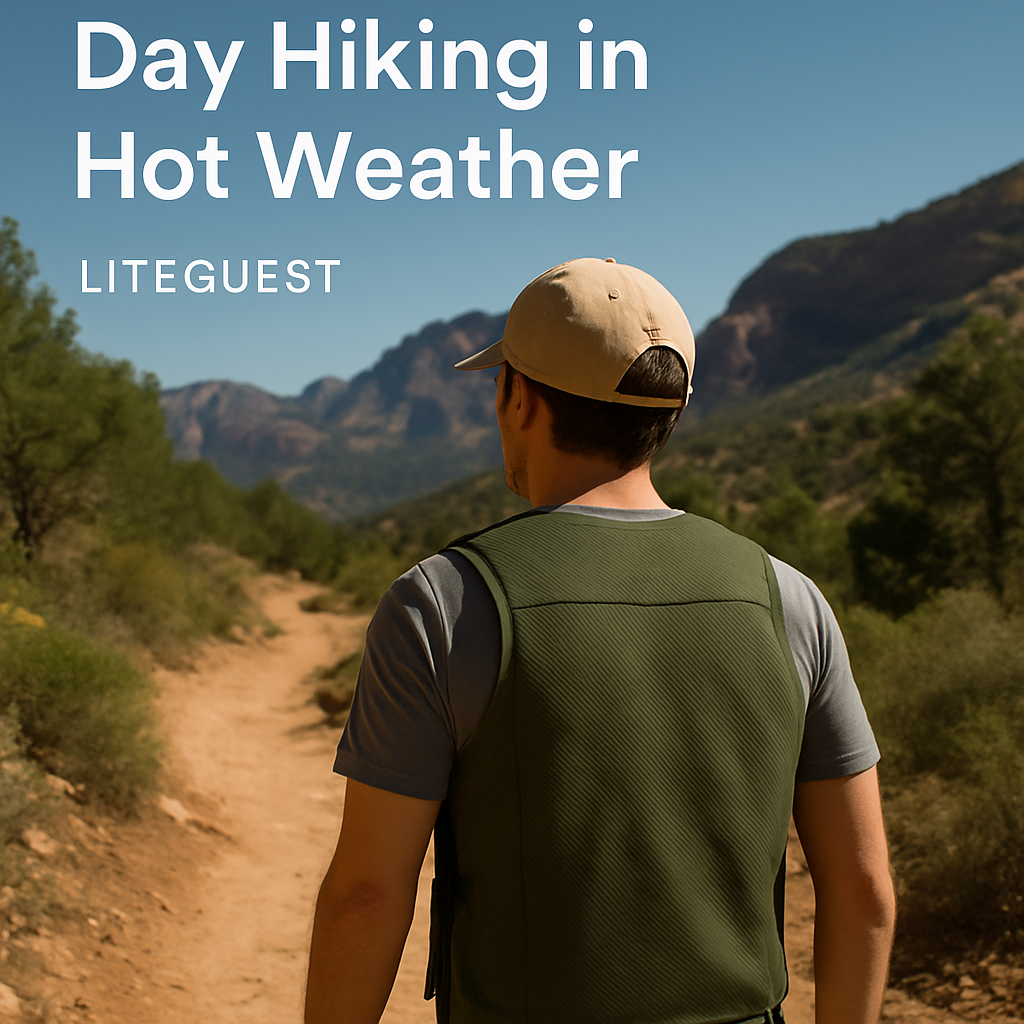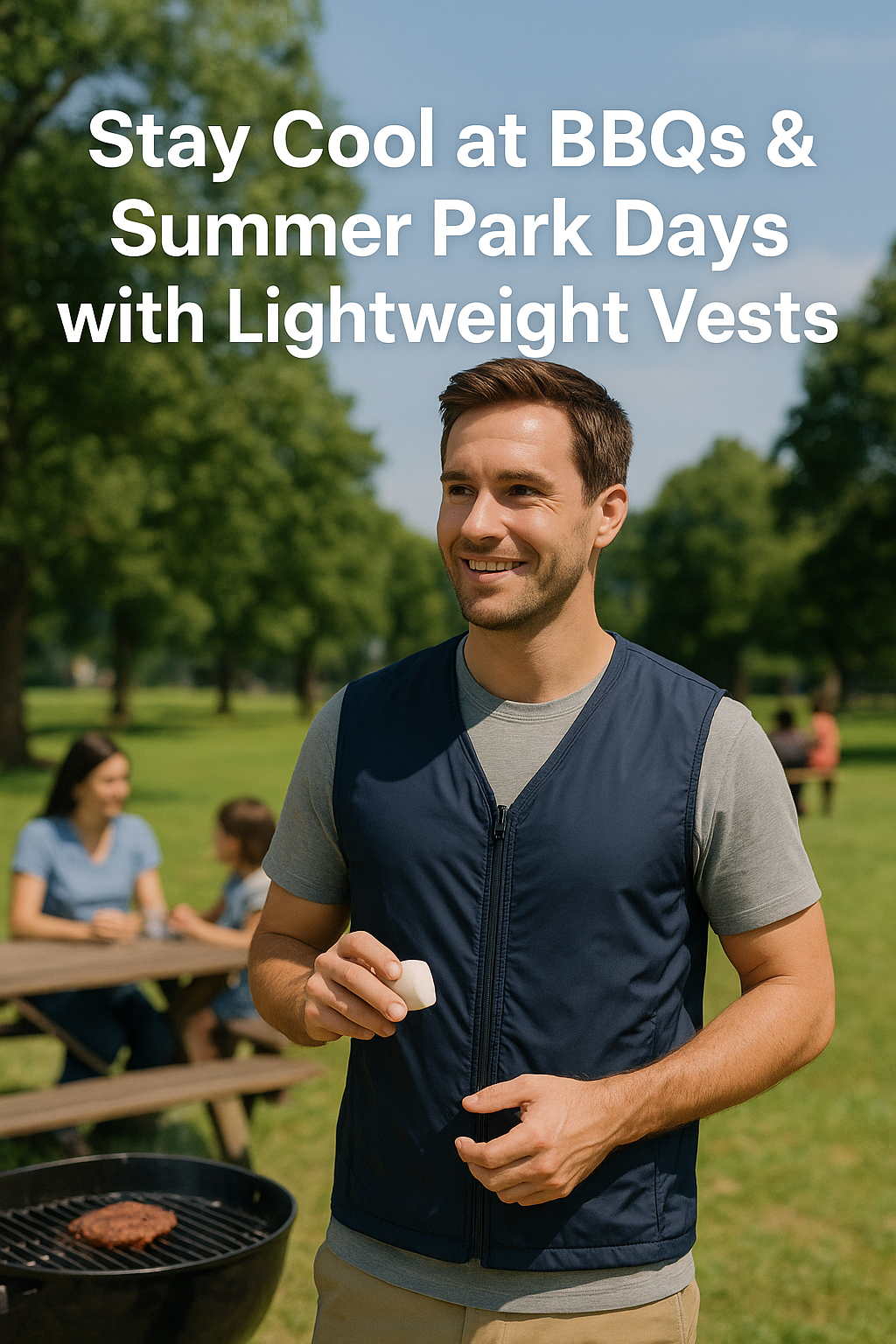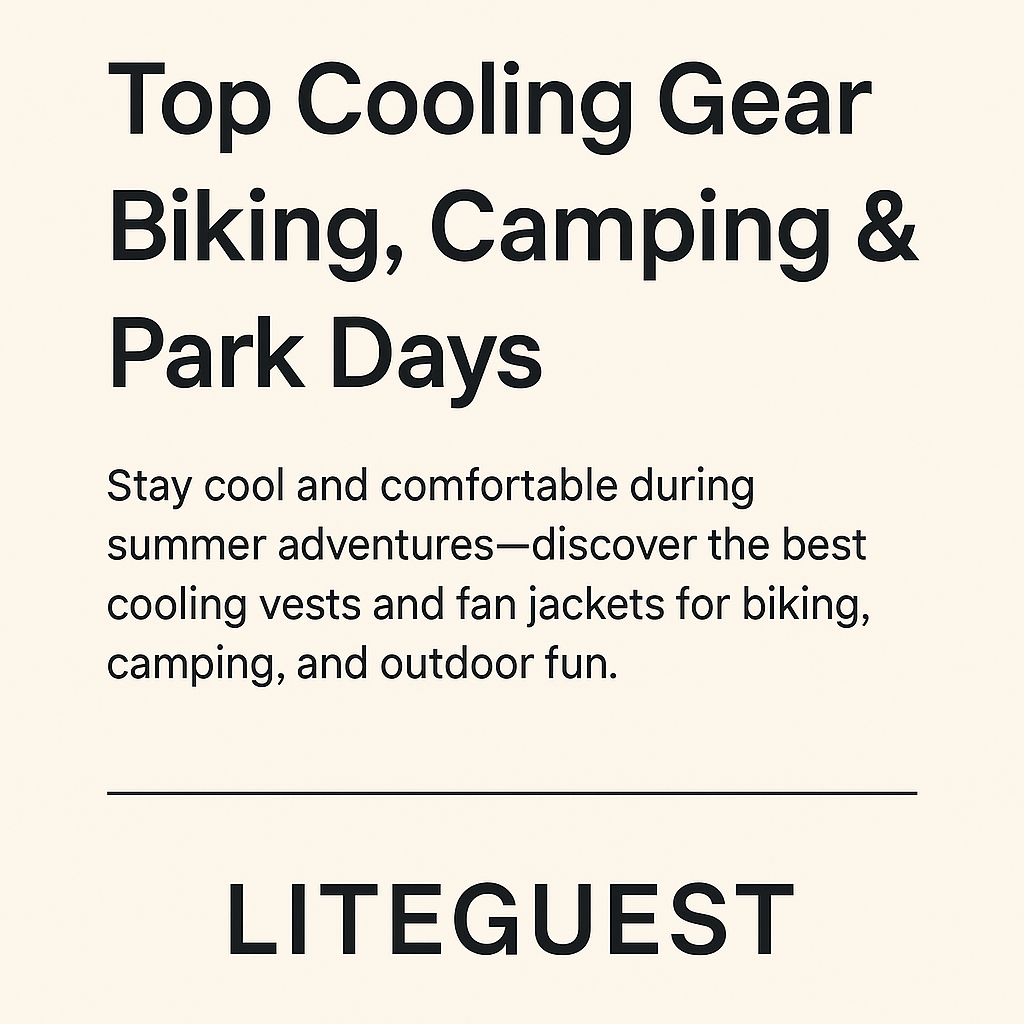Best Cooling Vests for Day Hiking in Hot Weather
Intro:
Planning a day hike in summer heat? You’ll need more than sunscreen and water. When temperatures soar above 100°F, a cooling vest can help regulate your body temperature, reduce fatigue, and keep you focused on the trail. Here's a guide to choosing the best cooling vests for hiking in hot weather.
Why Overheating Is Dangerous on the Trail
Heat stress is one of the most common reasons for early trail exits. Symptoms like dizziness, muscle cramps, and nausea can escalate fast—especially on exposed paths with little shade. Cooling vests reduce body temperature externally and complement hydration strategies internally.
What Makes a Great Hiking Cooling Vest?
Whether you're trekking 3 miles or 13, your gear must be built for performance. Key features include:
· Lightweight Build: Should weigh under 2 pounds for comfort during long hikes
· Breathable Material: Mesh fabrics improve ventilation and moisture wicking
· Backpack Compatibility: Thin fan systems or flat gel packs ensure no pressure points
· Flexible Fit: Adjustable straps or elastic sides to fit snugly without restricting motion
Cooling Technologies Explained
🔹 1. Fan Cooling Vests
· Built-in fans (usually 2–3) circulate air across your torso
· Most run on USB-rechargeable batteries (4–8 hours of use)
· Best in dry, arid climates where sweat can evaporate easily
· Example: TrailFit Fan Vest Pro
🔹 2. Evaporative Cooling Vests
· Soak the vest in water, wring out excess, wear over a base layer
· No power needed; lasts 4–6 hours
· Most effective in low-humidity environments
· Example: ChillWrap Evaporative Vest
🔹 3. Phase-Change (Ice Pack) Vests
· Use cold gel inserts or ice packs
· Heavier, and cooling lasts 1–2 hours
· Best for short hikes, breaks, or high-heat emergencies
· Example: QuickCool Ice Vest
Trail Conditions and Vest Choice
|
Trail Condition |
Recommended Vest Type |
|
Desert, dry, dusty |
Fan Cooling Vest (long runtime) |
|
Forest, shaded trail |
Evaporative or Fan Vest |
|
Swampy, humid area |
Ice Pack Vest + Neck Cooler |
|
High-altitude exposure |
Fan Vest with backup power bank |
Tip: Always test your cooling vest on a short walk before heading out for a long trek. Fit and airflow matter just as much as cooling duration.
Hiker’s Review
“I wore the TrailFit Fan Vest on a 10-mile loop in Moab. The battery lasted nearly 6 hours, and I stayed dry even in full sun. It was a total game changer.”
— Nate L., Phoenix, AZ
Pair With Smart Accessories
· Cooling Neck Towels: Dip in water for quick relief at rest stops
· Cooling Sleeves: Help protect from sunburn and heat buildup on arms
· Extra Battery Bank: Use a 20,000mAh pack for extended hikes
Comparing Cooling Vests for Hiking
|
Feature |
Fan Vest |
Evaporative Vest |
Ice Pack Vest |
|
Runtime |
4–8 hrs |
2–3 hrs |
1–2 hrs |
|
Weight |
Light |
Light |
Medium-Heavy |
|
Reusability |
High |
High |
Medium |
|
Power Required |
Yes |
No |
No |
|
Best Climate |
Dry heat |
Low humidity |
Any, short use |
Final Tips for Safe Hiking in the Heat
· Start early to avoid peak sun hours (12pm–4pm)
· Rest every 45–60 minutes in shade
· Use electrolyte tablets to complement water
· Always carry a cooling backup like a spare neck wrap or misting fan
Ready to Hit the Trail?
Don’t let heat slow you down. Whether you're walking mountain trails, open ridges, or humid forests, the right cooling vest can extend your endurance and enjoyment.
👉 [Shop Hiking Cooling Vests →]



